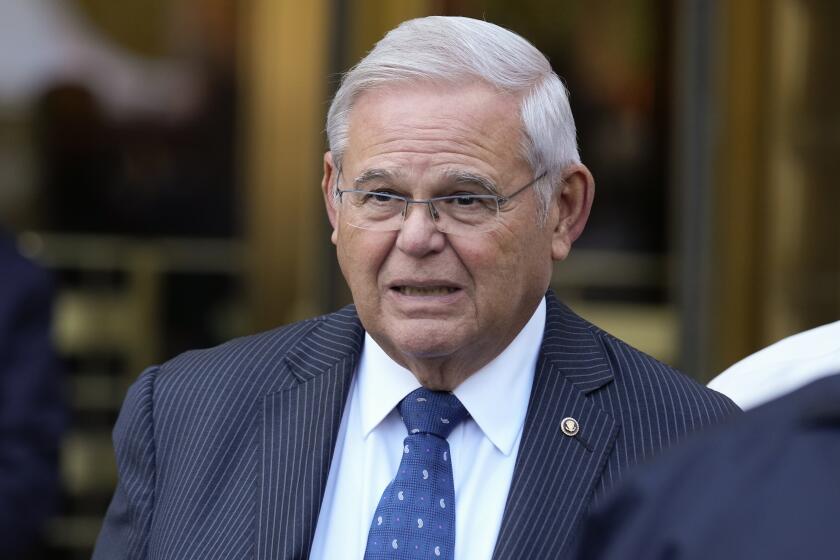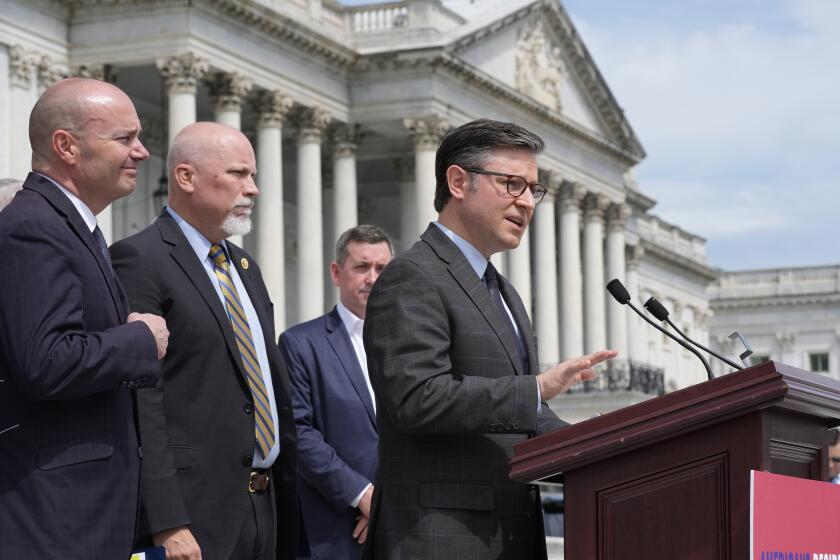Bad Smell in Congress
Not the least remarkable thing about the $520-billion spending bill passed by the House Tuesday and the Senate Wednesday was how many members of Congress rose to denounce it after its enactment. The 4,000-page omnibus package includes funding for 10 Cabinet departments, which should have been provided weeks ago, along with such other overdue measures as $18 billion to replenish the International Monetary Fund’s reserves. But it is also loaded with uncounted last-minute add-ons, including incumbent-benefiting pork-barrel goodies and special interest tax breaks.
Sen. John Ashcroft (R-Mo.) condemned the bill as reflecting the budget process at its worst. “It reeks,” was his summing up. Sen. Tom Harkin (D-Iowa) complained that “no one knows what’s in this stupid thing.” Sen. Robert C. Byrd (D-W.Va.), himself a champion provider of pork, saw the bill as a “monstrosity.” Thus was the people’s work done, in secret deal-making by congressional leaders and the White House and in votes cast in ignorance by weary legislators eager to get out of town.
In the end, the $70-billion budget surplus that President Clinton promised would remain inviolate was violated, as more than $21 billion was snatched away to fund so-called emergency needs, thus getting around the spending limits of the balanced budget agreement.
With temporary authority to keep the government running about to expire, the whole bill was put before the two chambers as a no-amendments-allowed, take-it-or-leave-it measure. Much in the bill had never been considered by committees. Much remains a mystery to those who voted for it and to the president, who signed it into law Wednesday. There must be a better way to do things.
And of course there is. It requires that lawmakers meet their constitutional responsibility to guide government spending by passing money bills in a timely manner, instead of holding them hostage to narrow ideological demands. To do that will take a level of co-operation and civility between the parties and between Congress and the White House that lately has all but disappeared.
Richard A. Gephardt (D-Mo.), the House Democratic leader, described the departing Congress as the worst in history. It’s not, but it is a Congress in which intemperance, rancor and partisan hobby-horse riding made conciliation difficult and statesmanship all but impossible. Americans deserve better than this from their elected leaders.
More to Read
Get the L.A. Times Politics newsletter
Deeply reported insights into legislation, politics and policy from Sacramento, Washington and beyond. In your inbox three times per week.
You may occasionally receive promotional content from the Los Angeles Times.






